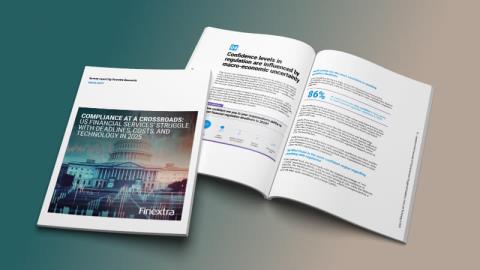
Similar Posts

CFPB Announces Plans to Reassess Open Banking Regulations: What You Need to Know
In October, the Consumer Financial Protection Bureau (CFPB) implemented the Personal Financial Data Rights final rule, allowing Americans to direct banks to share financial data with third-party providers, enhancing consumer control. However, reports suggest the Trump administration may revisit this rule due to banks’ concerns over liability risks from data breaches and potential access fees. Financial institutions have raised issues regarding data misuse. The CFPB faces legal challenges from banks claiming it exceeded its authority. Additionally, the Trump administration has scaled back regulatory activities, impacting consumer protection and oversight of tech companies in financial services.

BNY Boosts Compliance Efforts with Advanced Behavox Quantum Technology
Behavox Quantum is revolutionizing BNY’s compliance management by enhancing monitoring across various communication channels and supporting over 16 languages. Tom Wileman, BNY’s head of global compliance assurance, highlights that this technology strengthens their compliance processes and risk management approach. Key features include comprehensive monitoring, multi-language support, and improved risk management strategies. The SaaS implementation also boosts efficiency, accuracy, and scalability, enabling BNY to adapt to evolving organizational needs. By adopting Behavox Quantum, BNY aims to solidify its leadership in compliance and risk management within the financial sector.

EC Unveils Ambitious Plan for T+1 Migration by 2027: What You Need to Know
The European Securities and Markets Authority (ESMA) has proposed a transition to a T+1 settlement cycle, scheduled for 11 October 2027, to enhance efficiency in European financial markets. This shift aligns the EU with countries like the US and Canada, which have already adopted this faster settlement process. In response, the European Commission is suggesting amendments to the Central Securities Depositories Regulation to facilitate the transition. The T+1 cycle is expected to reduce delays, increase market efficiency, and enhance resilience while ensuring global alignment. The Association for Financial Markets in Europe supports this initiative, emphasizing its importance for competitiveness.

Navigating Compliance Challenges: Insights from Finextra Survey on Technology Gaps Amid US Regulatory Uncertainty
A recent survey reveals strong regulatory confidence among financial institutions, with 96% expressing optimism about meeting compliance deadlines by 2025. However, challenges remain, particularly regarding data security, as 26% of banks view the Bank Data Security Act as critical. While 72% utilize data analytics and 66% use AI for compliance, only 3% feel their technology fully meets needs. Key barriers include high compliance costs (36%) and talent shortages. Collaboration with third-party vendors is rising, as 73% seek external expertise. The survey underscores the need for innovative technology and a better understanding of credit unions’ roles in the evolving regulatory landscape.

Top 150 Trailblazing Organizations Set to Join NextGen Nordics 2025!
NextGen Nordics is set to attract over 150 organizations, including banks, fintechs, regulators, and infrastructure providers, emphasizing the region’s role in the future of finance. Key participants include major banks like Nordea and Handelsbanken, regulatory bodies such as the European Central Bank, and payment leaders like Visa and Mastercard. The event will focus on collaborative innovation, covering topics like real-time payments, digital currencies, AI in banking, and open banking. With contributions from global firms and Nordic innovators, NextGen Nordics offers industry leaders a platform to shape the future of payments and connect with peers.

Unlocking Private Finance: The Impact of Mainstream Biodiversity on Investment Strategies
Anita de Horde, co-founder of the Finance for Biodiversity Foundation, emphasized the urgent need to transition from philanthropy to sustainable financing for biodiversity initiatives in a recent FinextraTV interview. She discussed biodiversity credits and blended finance, stressing the importance of reducing reliance on traditional funding. Collaboration among local governments and stakeholders is crucial for de-risking investments, and qualified data is needed for effective decision-making. The private sector’s engagement in biodiversity has increased significantly since COP15, highlighting its mainstream importance. De Horde called for data-driven insights to guide investments and ensure the long-term viability of biodiversity projects.
